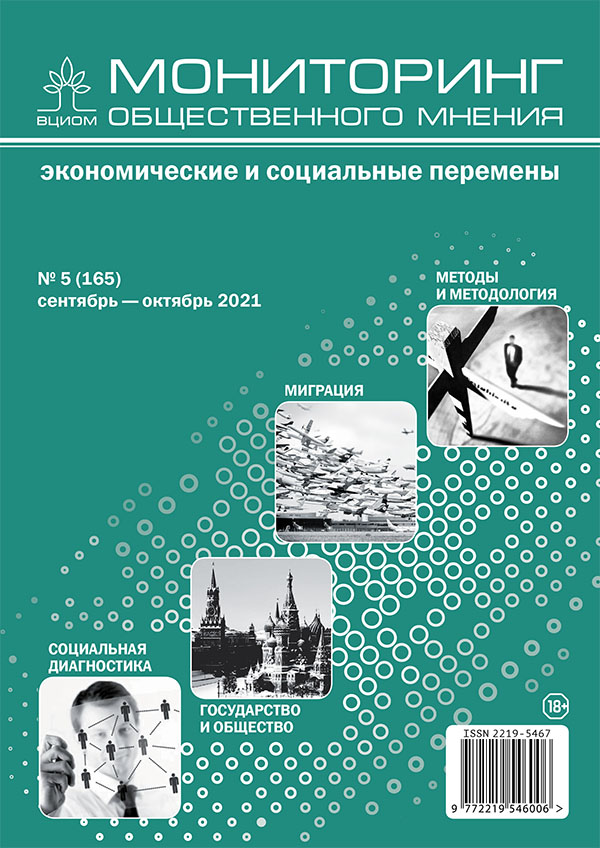Methods of Constructing Expertise on YouTube: Videos of Popular Bloggers-Historians on the Stalinist Repressions
DOI:
https://doi.org/10.14515/monitoring.2021.5.1965Keywords:
social media, YouTube, bloggers, expertise, memesAbstract
In the past few years, a group of bloggers, who pay a lot of attention to historical topics despite not being a part of professional community of historians, has become active on YouTube (i.e., Dmitry Puchkov, Klim Zhukov, Konstantin Semin, Andrey Rudoy, Yegor Ivanov, etc.). They formed the «communist» sector of the Russian YouTube and gained particular prominence in 2019 thanks to their criticism of the documentary film «Kolyma — the Birthplace of Our Fear» by journalist Yuri Dud dedicated to the Stalinist repressions. These bloggers were able to offer an alternative narrative on the repressions and counted hundreds of thousands views on YouTube. This paper analyses their video reviews of the Dud's «Kolyma» and examines their methods of constructing an expert position. Firstly, bloggers use humor as an argument. Sarcasm and Internet memes seem to emphasize the absurdity of Dud's theses and thus convince the viewer of the critics’ rightness. Secondly, bloggers build fan communities and appeal to performative authenticity, which allows their audience to feel closer to the authors, increasing creators' trustworthiness. Finally, bloggers claim expert position based on the fact that they, in turn, question the expertise of Dud and the heroes of his film, accusing them of incompetence and partisanship. They also state their approach as opposing to Dud's one, highlighting attention to the historical sources, and not personal stories, and refraining from emotions. The case presented in the paper is indicative of a wider range of phenomena, including bloggers and channels of different topics or political views. It contributes to understanding YouTube as a platform where new influencers and Internet celebrities emerge, clarifying what allows them to successfully broadcast their ideas, gain authority, and hold an expert position in the eyes of the audience.
Acknowledgments. The research was carried out within the framework of the project group «Online forms of collective memory: participatory culture and “public historians” on YouTube», implemented at the Faculty of Communications, Media, and Design at the HSE University.
Downloads
Published
How to Cite
Issue
Section
License
Copyright (c) 2021 Monitoring of Public Opinion: Economic and Social Changes Journal (Public Opinion Monitoring) ISSN 2219-5467

This work is licensed under a Creative Commons Attribution-NonCommercial-ShareAlike 4.0 International License.






